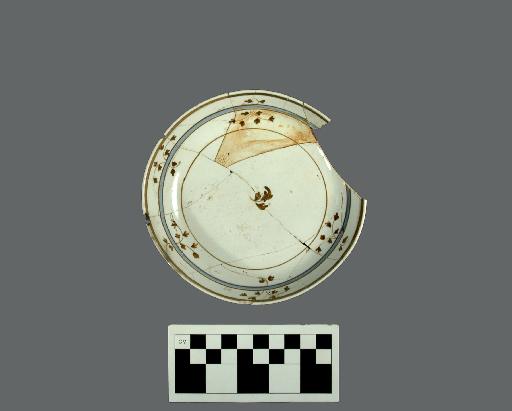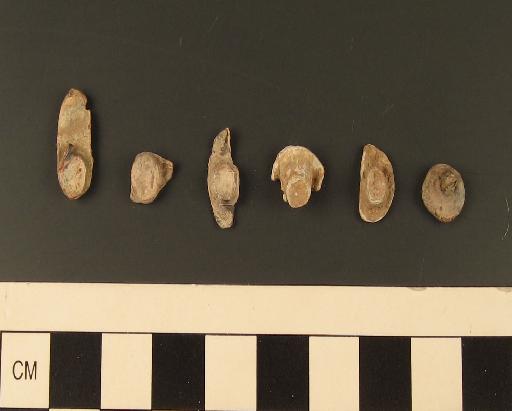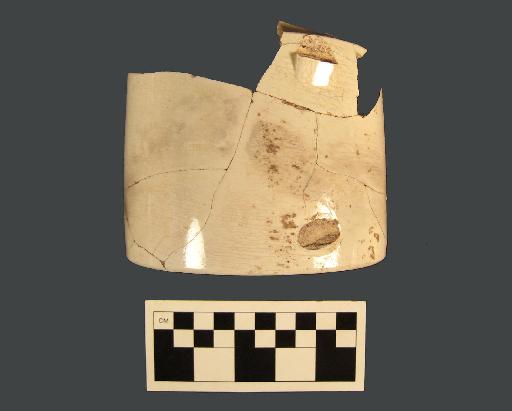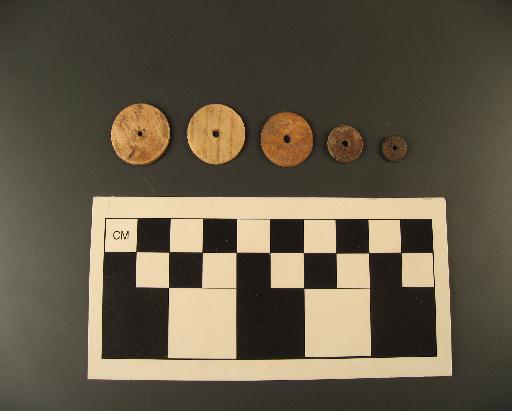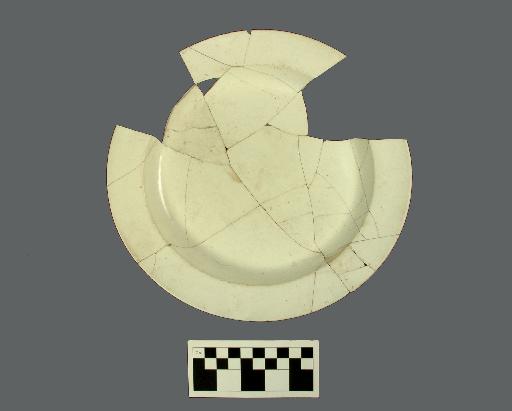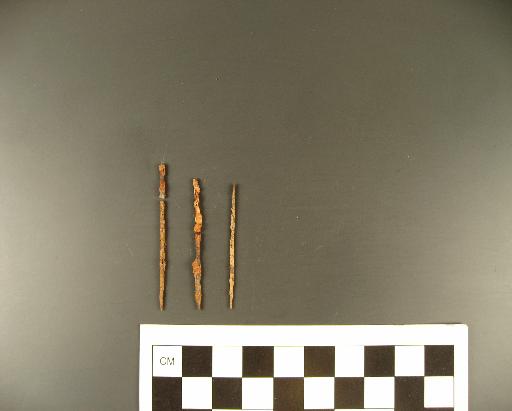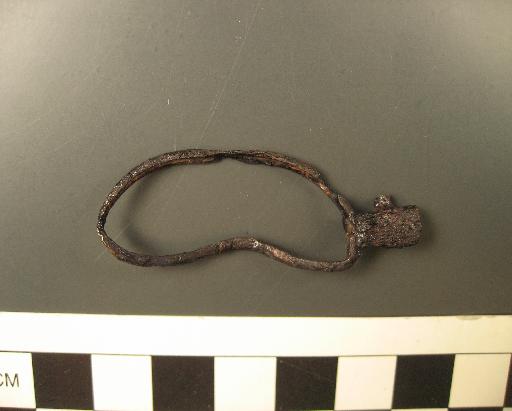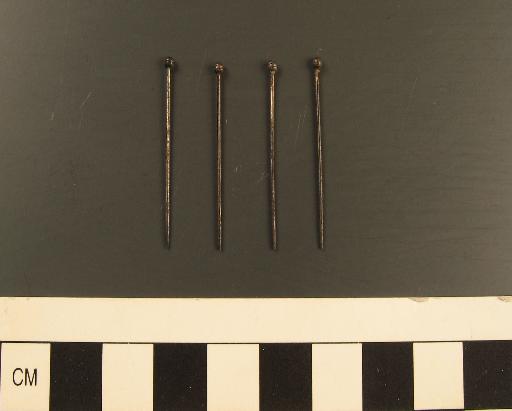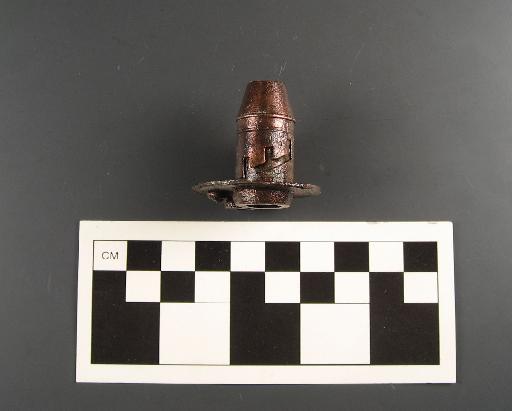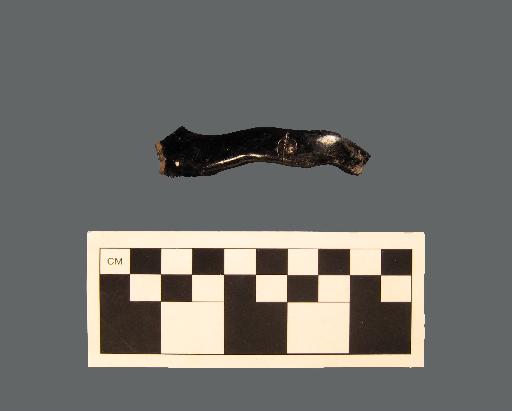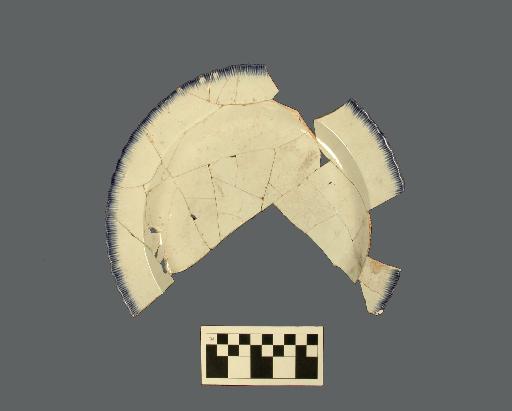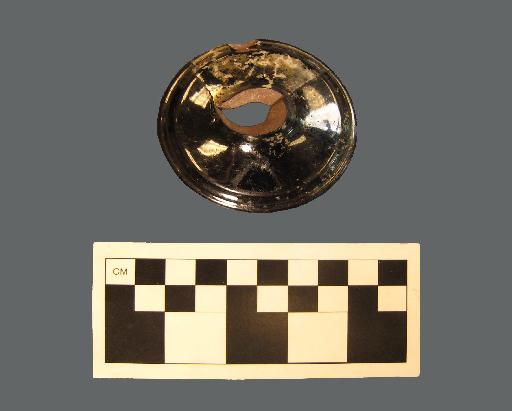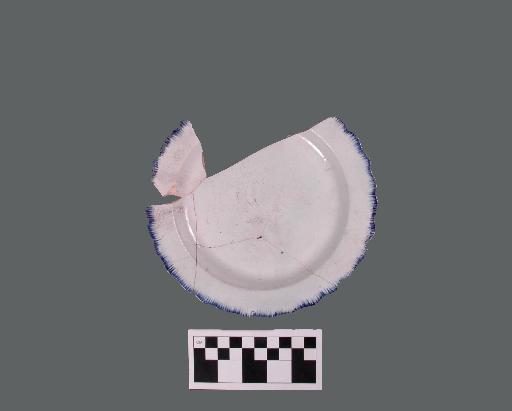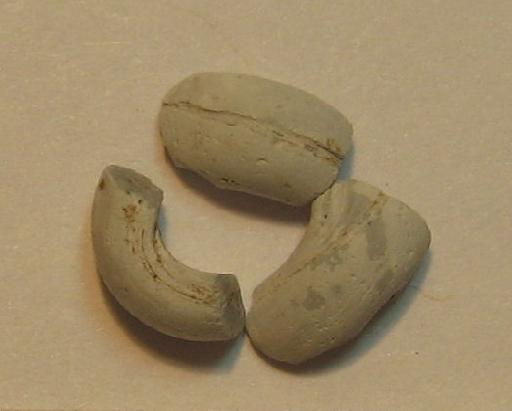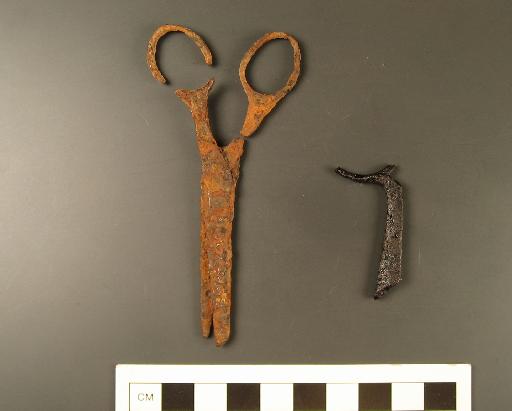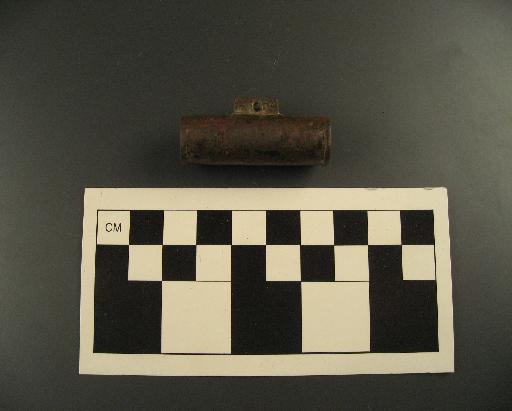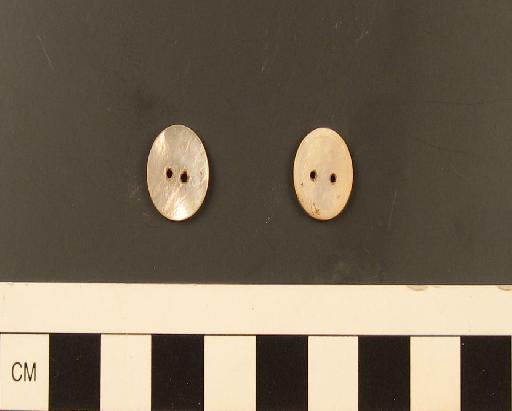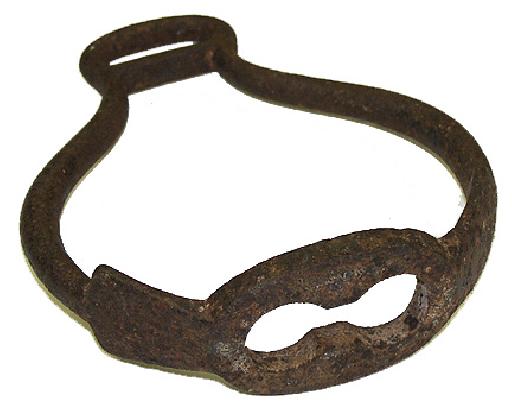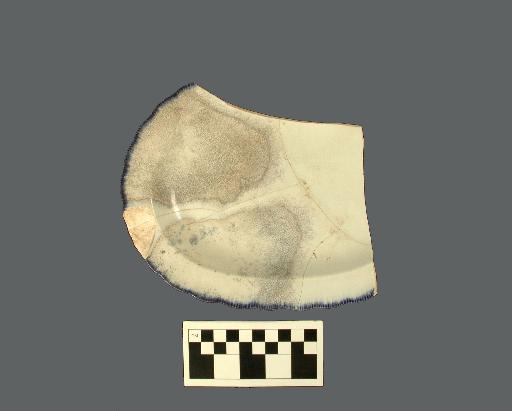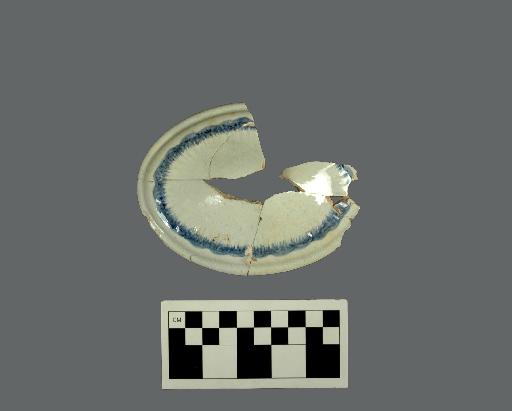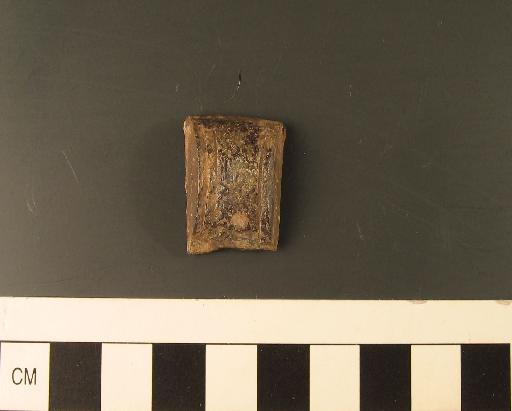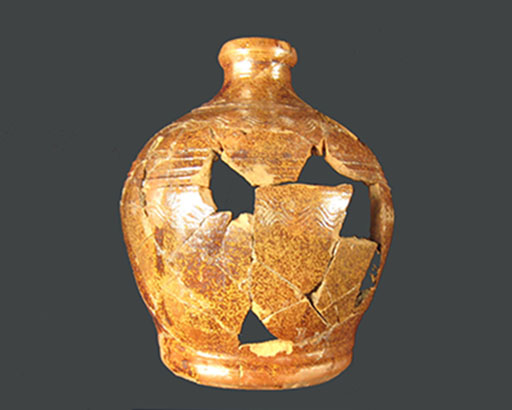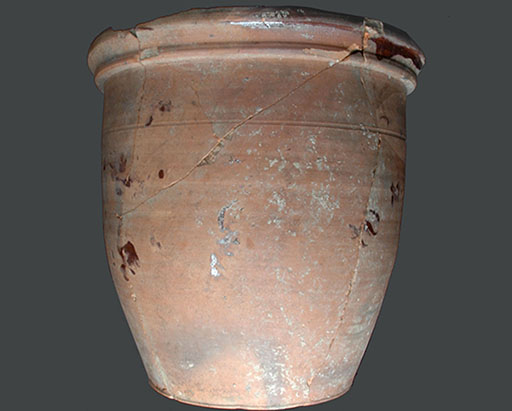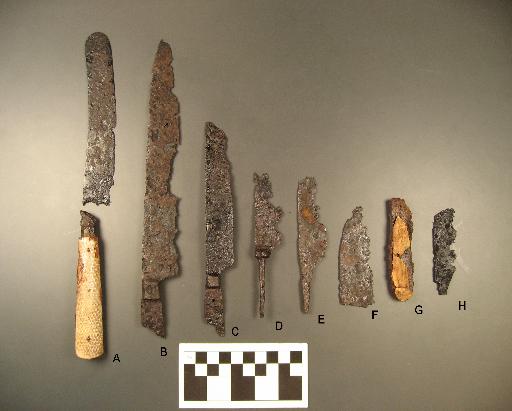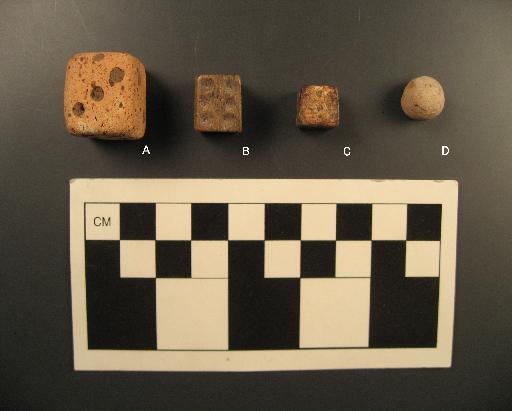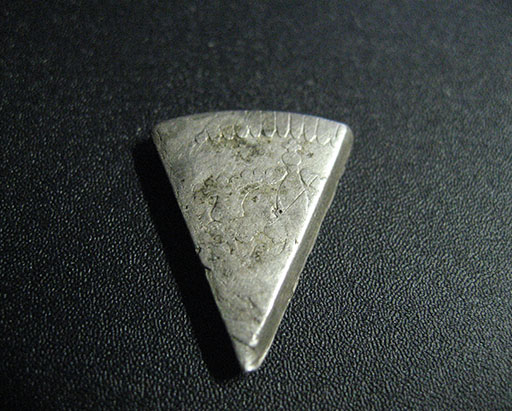Artifacts ALL
Simply scroll through the following images and click for more information about the artifact(s). You may also use the filter options to browse by location, material, or category.
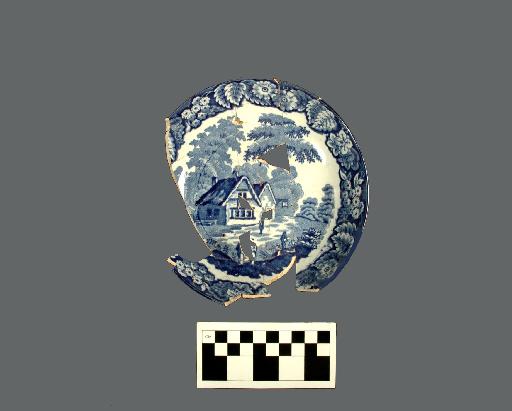
Pearlware saucer with...
This saucer has a bucolic scene of a tavern in the woods with three men in th...
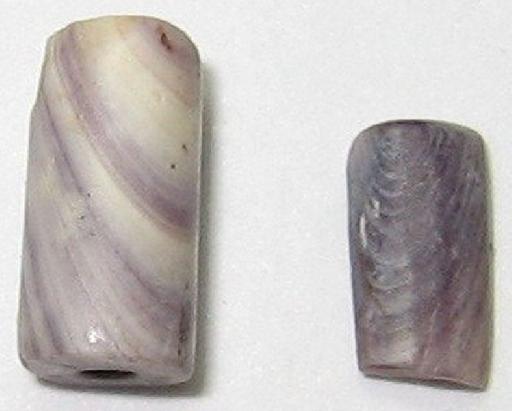
Wampum, cylindrical
This is a cylindrical bead (and a fragment of a second bead) with small bore ...
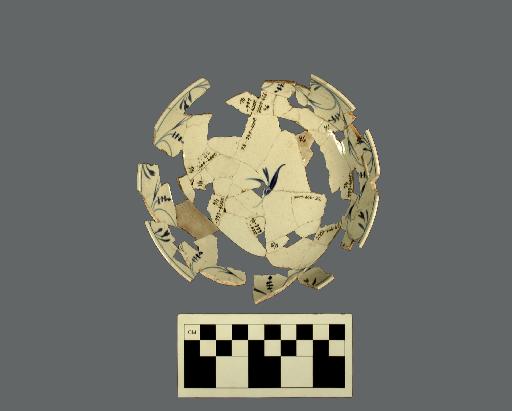
Hand-painted saucer
Pearlware saucer with delicate hand-painted decoration. This is a fine exampl...
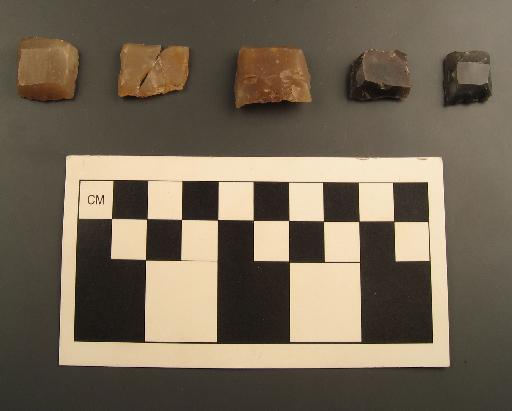
English and French gu...
Six gunflints were found at Davidsonville. Four are honey-colored French flin...
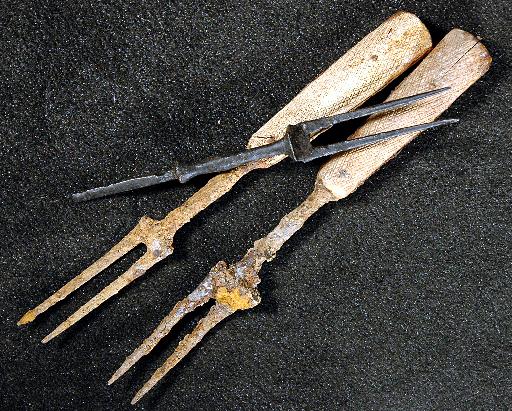
Iron fork, Fork with ...
Two tine iron fork with flat tang and bone handle plates, with cross-hatched ...
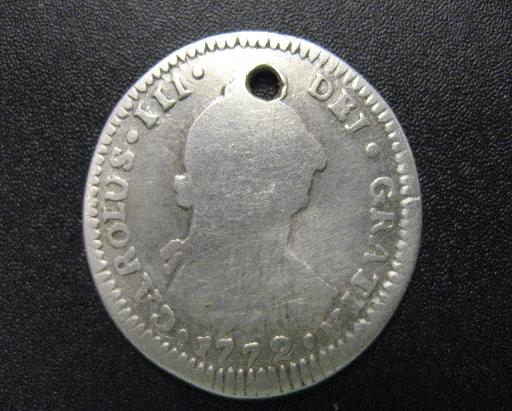
1772 Spanish 1 real c...
This is a one real Charles III milled portrait coin. The back side of the coi...
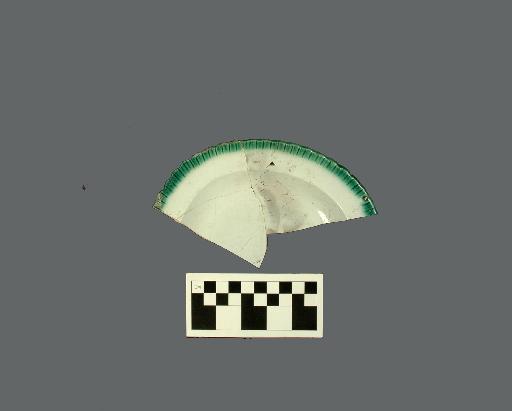
Pearlware Platter fra...
Two large pieces remain of this oval platter with green shell-edge decoration...
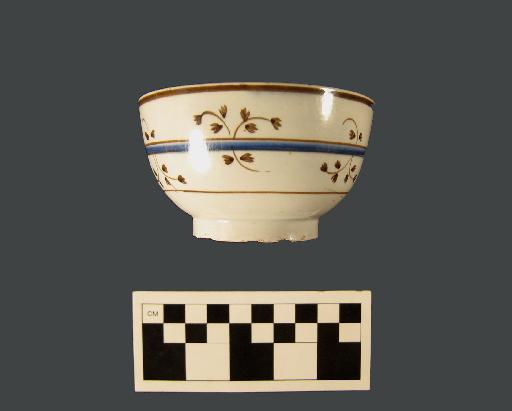
Hand-painted pearlwar...
One of a set of twelve tea cups and saucers with blue and brown hand-painted ...
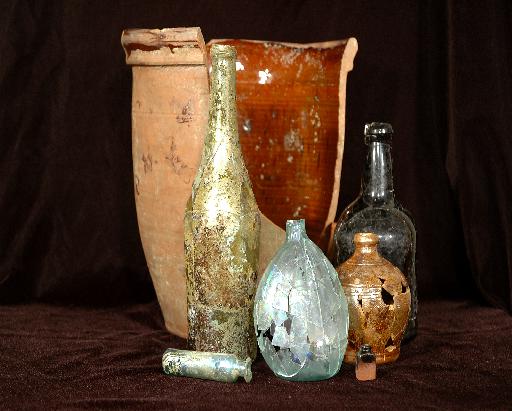
Glass medicine vial, ...
Light green glass apothecary vial, missing only a portion of the flanged lip....
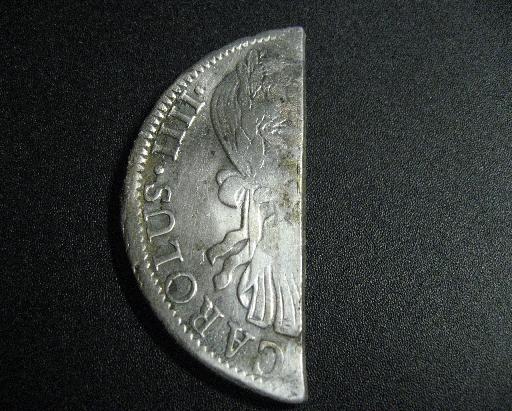
Half Spanish 8 real coin
This Spanish silver coin was cut in half, making a 4 real coin. It has a port...
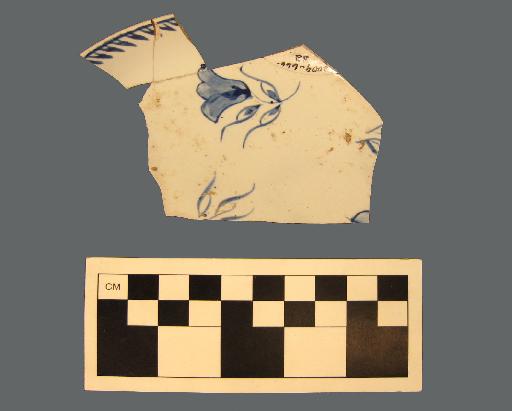
Hand-painted pearlwar...
The painted designs on these saucer fragments match those on the tea cup 2004...
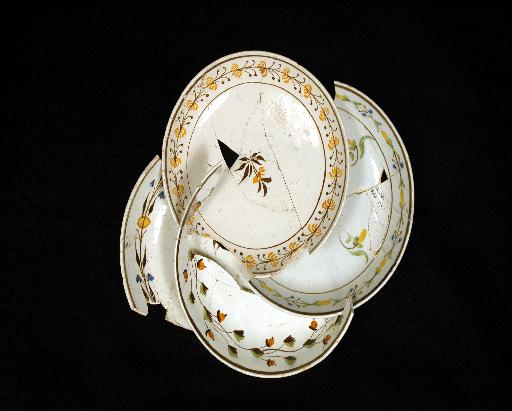
Hand-painted saucers
Hand-painted pearlware saucer with yellow and brown floral sprigs. (Upper Cen...
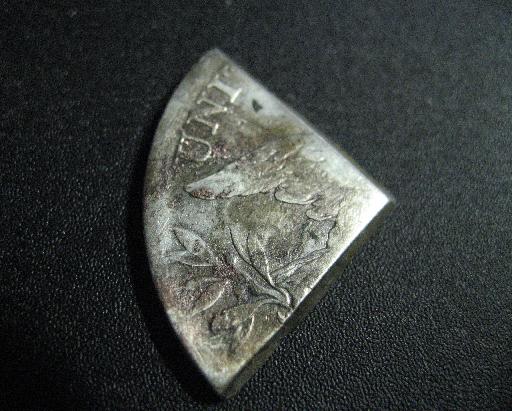
US Half Dollar coin
This is a half dollar that has been cut to form a "bit," piece. In colonial A...
Keys and Lock Hardware
Images A and B show iron keys that were used in either door locks, a padlocks...
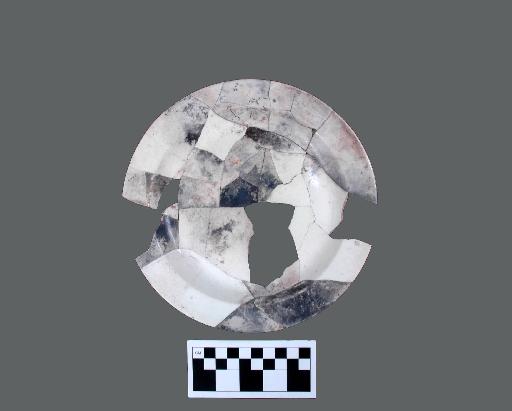
Creamware Dinner Plate
This small dinner plate has a raised rim. Most of the sherds have been scorch...
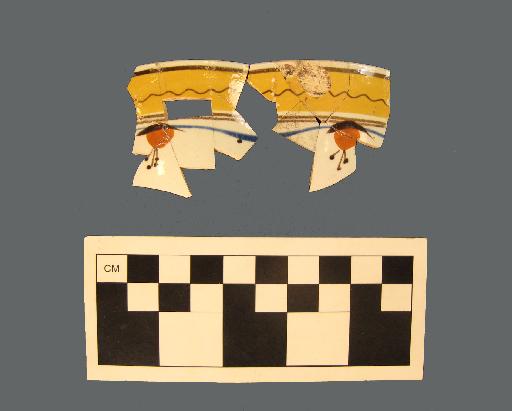
Hand-painted pearlwar...
These sherds may be from a handleless tea cup. Their hand-painted design is a...
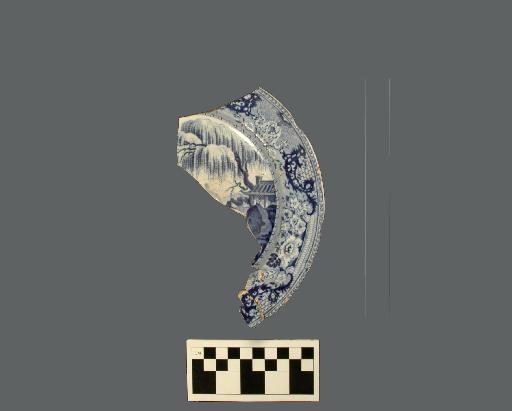
Pearlware muffin with...
This small plate is decorated with a pattern called View of the Imperial Park...
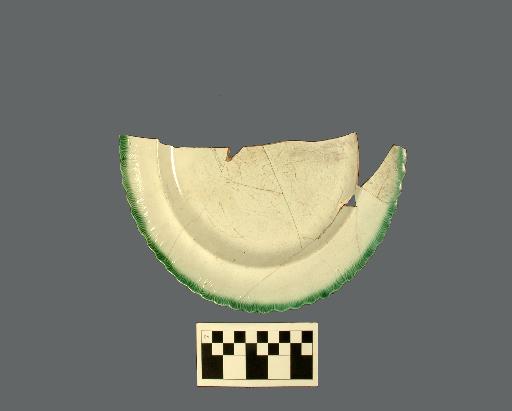
Pearlware dinner plate
Pearlware plate with green shell-edge design. The edging is impressed and coc...
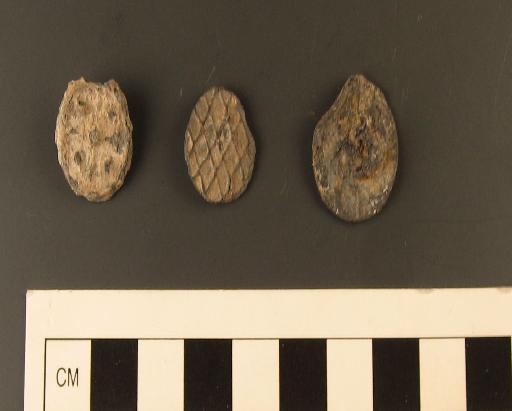
White metal Military ...
These buttons are cast and made from white metal (light colored alloys). The ...
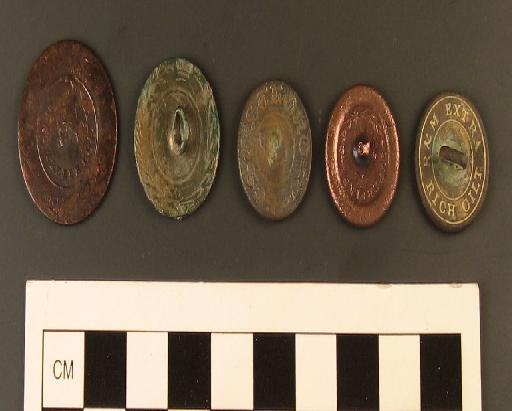
Stamped brass buttons
This flat disk with eye soldered to the back is the most common type found in...
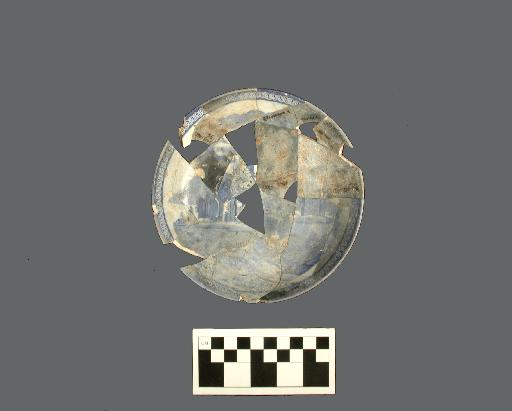
Pearlware saucer with...
Many of the sherds from this saucer are badly scorched from burning. The patt...
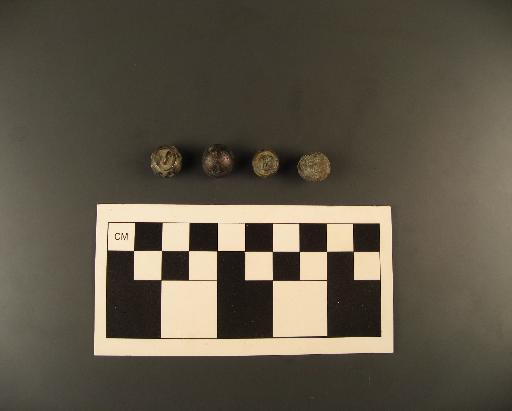
Brass "Bullet" Buttons
This is an interesting two-piece, nearly spherical button referred to as a "b...
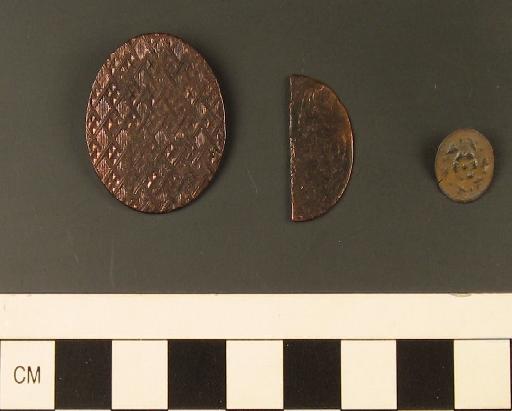
Decorated metal buttons
These are cuprous buttons with die-stamped designs. We know this because ther...

Redware Pitcher fragm...
These sherds are from a redware vessel with a maroon glaze on its exterior, a...
Iron, pewter, and pew...
A variety of spoons and spoon fragments have been found at Davidsonville. Of ...
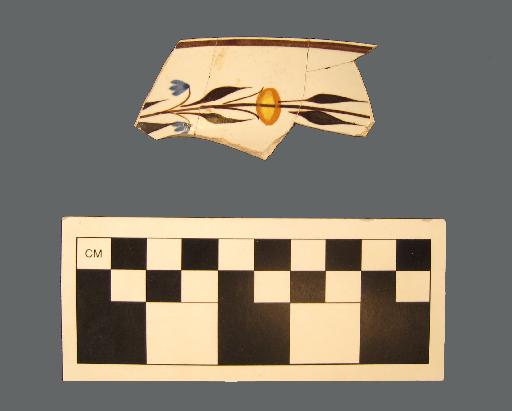
Pearlware Saucer frag...
This assortment of sherds from saucers illustrates the range of colors and de...
Faceted Glass Button
This is a domed, faceted button made of clear glass. The eye was inserted int...
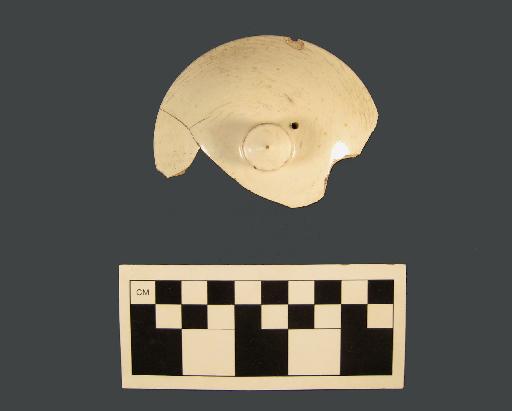
Creamware teapot lid
This creamware lid fits the teapot described above. Note the vent hole for al...
Lead Balls and Shot
This array of lead shot comes from excavations in lots around the town site. ...
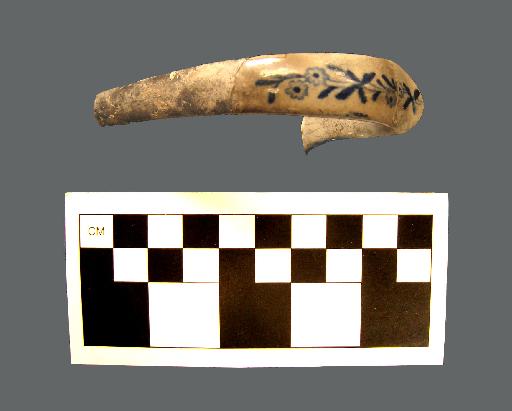
Sauceboat/Pitcher/Tea...
Hand-painted with a design of blue flowers, stems, and leaves, this pearlware...
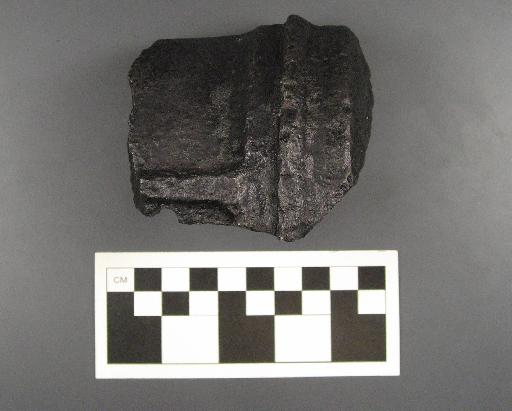
Fragment from an Engl...
This is part of an exploded swivel gun, most likely English in design, dating...

Snaffle or Watering Bit
A snaffle bit is the most common bit for horseback riding. It consists of a b...
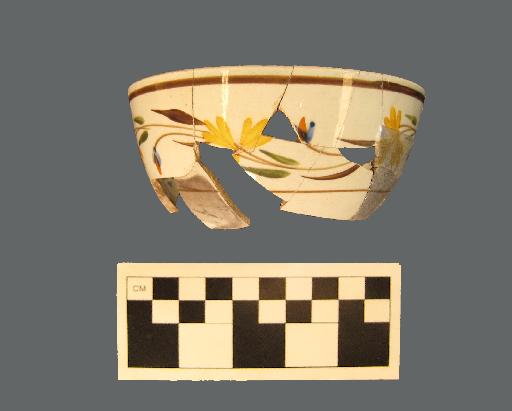
Hand-painted pearlwar...
This tea cup is decorated with stylized flowers, leaves and stems in bright s...

Plain creamware bowl
This reconstructed bowl has a raised footring. The hemispherical shape of thi...
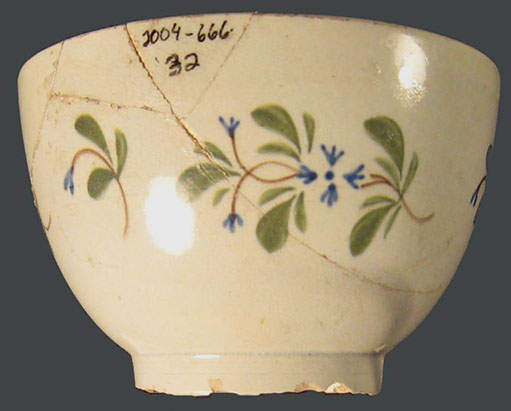
Hand-painted pearlwar...
This pearlware tea cup has a delicate floral hand-painted decoration. There i...
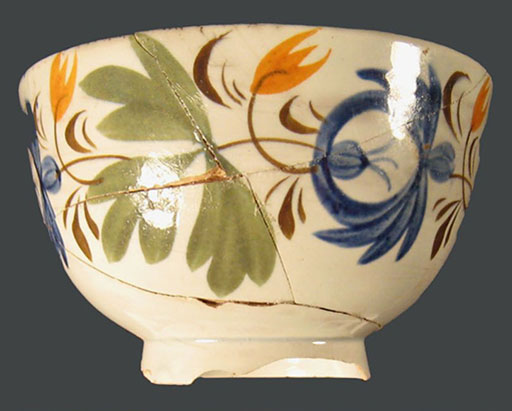
Hand-painted pearlwar...
This is a handleless tea cup decorated with a brightly colored hand-painted f...
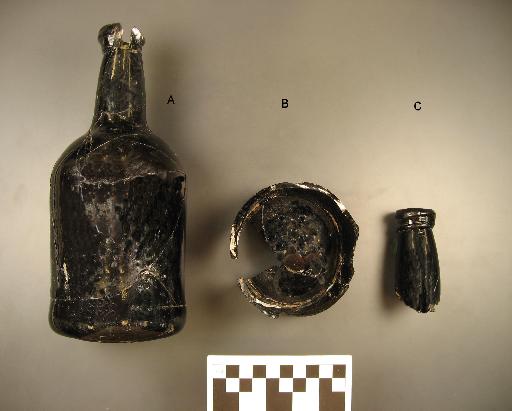
Undersized quart beer...
One reconstructed cylindrical English bottle and fragments of at least one ot...
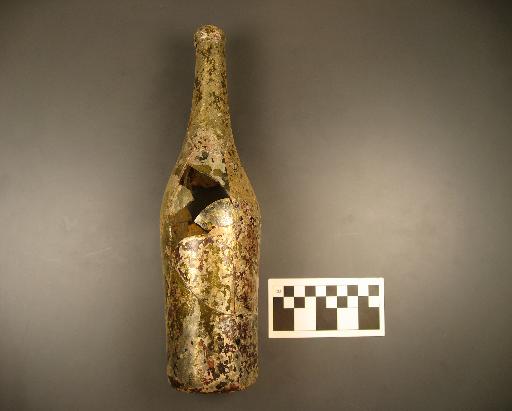
Bordeaux-style wine b...
This light green cylindrical bottle was reconstructed from fragments found in...
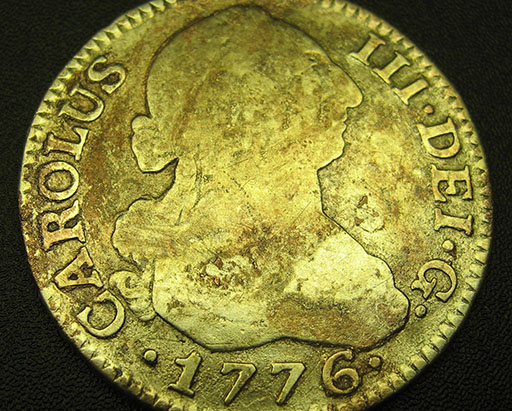
Spanish Charles III p...
This whole silver coin is known as a head pistareen. Pistareens were minted i...

